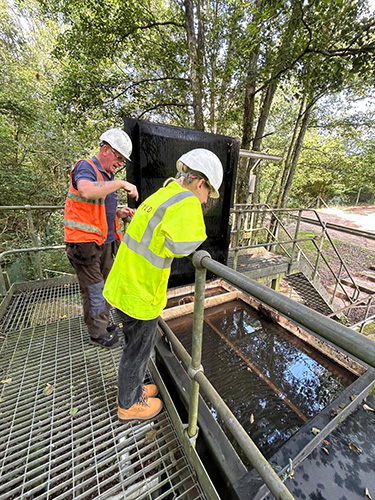Prepare to meet this new workforce with modern field work practices, transformed safety initiatives, and always-on learning.
By Shelley Copsey, CEO, FYLD
The “Toolbelt Generation” is a real trend. Gen-Z is drawn to skilled trades more than other generations because of the rising costs of higher education, a desire for hands-on work, and the ability to make a living immediately, among other benefits.
Yet the recent shift isn’t reversing construction’s hiring dilemma. That dilemma starts with the industry’s perception problem. A 2023 Jobber survey found that 74% of U.S.-based high school and post-high schoolers believe there’s a vocational school stigma.
Parents are major drivers of the perception problem—who wants their children to enter “unsafe” professions?—but other factors also run deep. Young workers want to be surrounded by the conveniences of technology and to feel their career choices will provide a bright future.
The good news is that widespread technology adoption creates a more efficient, productive, and sustainable industry and also makes the promise of more youth a reality. Here’s how.

If younger generations believe the industry is antiquated, they likely won’t consider it a viable career path. They’ll go to the Tesla factory down the street (we’ve seen this with clients struggling to hire in Mexico).
Part of why Elon Musk has been so successful at some of his missions is because he relentlessly pursues better…and he’s vocal about why his version of better is needed. People buy in.
We can learn a lot from these strategies. First, strive for better. Second, be vocal about the problems you’re solving. Without an adept construction industry, we couldn’t go on a road trip to visit family or get to the grocery store. We wouldn’t even have safe grocery stores. That’s a great message to start.
But we also know projects often run over time and budget, causing headaches and extra costs for everyone. A recent survey of senior project executives found that, on average, infrastructure projects overrun their budgets and schedules by 30-45%.
Digitization immediately reduces those percentages. For example, at FYLD, we removed 90% of paper from one client’s processes over five months. Less time devoted to paper means more time for critical work and projects completed effectively and on time. These are the better outcomes everyone deserves.
In terms of being vocal, wouldn’t you want to be the company that tells young recruits: “Because of digitization, we have a 95% on-time project completion rate and helped reduce local taxes.
Join us to continue solving society’s toughest problems.” This is a Gen-Z HR strategy going largely untapped.
According to the U.S. Bureau of Labor Statistics, in 2022, the construction industry accounted for nearly 20% of all workplace fatalities. Younger generations—who’ve grown up embracing technology for health/wellness (meditation apps) and safety reasons (IoT sensors)—are taking notice.
The solution is simple: field work managers need 100% visibility into what’s happening. They also need to have the right insights at their fingertips to make smart decisions. Without technology, that’s impossible for remote managers.
AI’s biggest promise to the construction industry is predicting how a day’s operations will play out so that managers can change what their teams do at any moment and ensure that every job gets delivered safely.
Imagine this: if a water pipe exploded, the risks on that site at 9 a.m. versus 3 p.m. could be different. At 9 a.m., the kids are at school, and traffic slows. The main risks might be a deep excavation and high-pressure water escaping. But the vast data sets of AI will alert managers that, by 3 p.m., school’s out and parents are picking kids up. You’re now throwing crowds of people into the mix and need a different approach—quickly.
We’ve reduced injuries and incidents by up to 20% by unleashing the power of AI. Until a safer industry is the norm, we’ll be hard-pressed to see more youth coming in.
Whereas a paycheck and stability might have been enough for Boomers, Gen-Z seeks employers who care about their development.
LinkedIn calls this Gen-Z’s “passion for progress” and shows they over-index against their millennial neighbors in agreeing that: “Through learning, I can explore potential career paths at my company.”
Technology has the potential to transform learning and development in construction. We could have pocket AI buddies that answer in-the-moment questions and on-demand microlearning modules when we want to spend a few minutes learning something new. This works well for video topics like how to conduct a machine walkaround inspection before handling new equipment.
VR can also provide immersive safety training experiences, removing the risk of harm while learning and developing future construction safety managers.
As technology weaves its way through the industry, a wave of Construction Technologists will follow. The industry should be ready to meet them where they are. Hire them and keep them from wanting more from what they find.

Shelley leads FYLD, ensuring that the promise of safe, efficient field operations are delivered upon for our customers and users and that the FYLD team love coming to work each day.
Scott Ellyson, CEO of East West Manufacturing, brings decades of global manufacturing and supply chain leadership to the conversation. In this episode, he shares practical insights on scaling operations, navigating complexity, and building resilient manufacturing networks in an increasingly connected world.